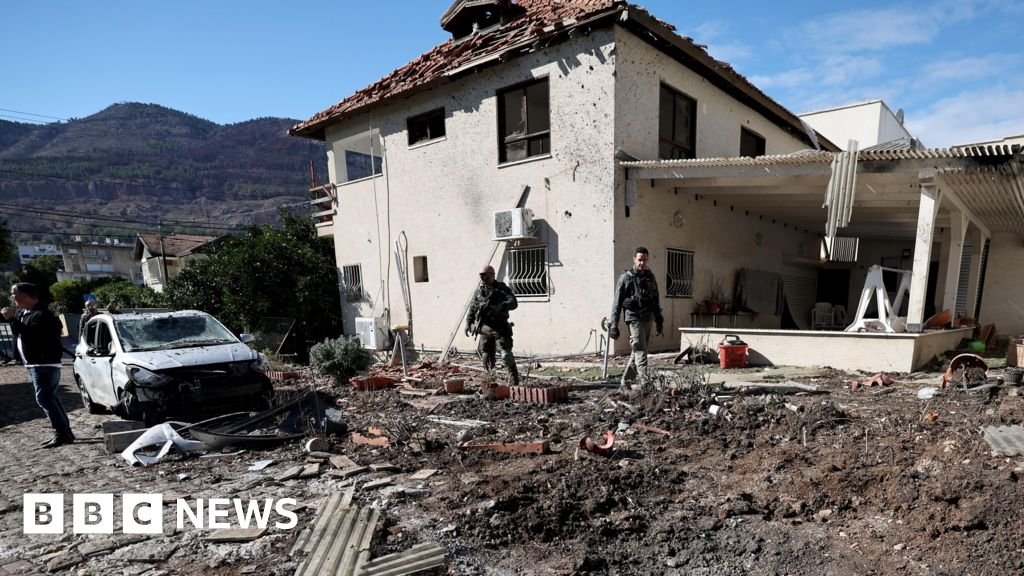But capitulation is exactly what his political rivals – and some of his political allies – accuse Netanyahu of.
One poll yesterday showed that more than 80% of Netanyahu’s supporters opposed the deal, and many residents in northern Israel – many of whom have been evacuated from their homes – are also angry.
Shelly, an English teacher in Shlomi, said the ceasefire was an “irresponsible and hasty political decision”.
Rona Valancy, an evacuee from Kibbutz Kfar Giladi on October 8 last year, told me she wanted to return home and that a ceasefire was needed, but the idea of the Lebanese returning to those villages left her with a “real sense of anxiety and fear.” “.
Kfar Giladi offers a clear view of the Lebanese village of Adaiseh across the valley.
“The only thing I can hope for is that Hezbollah doesn’t infiltrate these villages and build a new network,” Rona told me. “Besides the complete obliteration of these villages and the absence of people there, there is nothing real physical that would make me feel safe. It’s just, you know, hope.”
Her husband, On, said the key to security is not the terms of the ceasefire agreement, but that people “understand again where we live; understanding some things that many of us have forgotten.’
He said he did not trust the Lebanese army or the Americans to restore security at the border.
“I only trust our army,” he said. “I think that if the army is not there, it will be very, very difficult to get the citizens back.”

